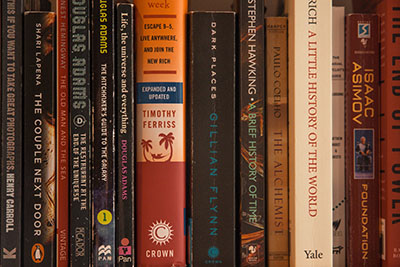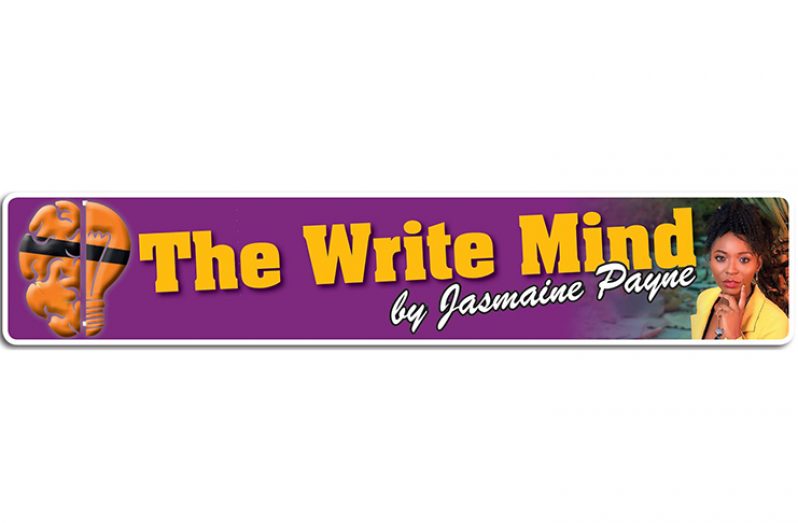Is traditional publishing worth the hype?
When I finally finish my novel, I want to take my finished manuscript through the seemingly impossible task of trying to get it traditionally published. That means I hope to attract an agent who will then help me to get it picked up by a publishing company and mass-produced so that I can earn off its sales via royalties.
The fact is that the biggest publishing houses are in the United States, but thankfully, getting published by one of these companies or even landing an agent has nothing to do with where you live. That means that as a Caribbean writer, I will be attempting a small-fish-big-pond task, and the likelihood of me getting through is practically impossible, but I believe that going through this process is a right of passage that I owe to my work. Once I have done this, and if I get no luck along this line, I will THEN look to self-publishing. My aim in all that is to say I have walked the walk as a writer.
Guyanese writer, Subraj Singh also seems to prefer the traditional route. “Business is really not my cup of tea. I’m a writer, not a marketing person or a printer or a designer, so I’d like to have those elements covered by people who are skilled in those areas, and I think traditional publishing gets your work to those people easily,” he told me. However, he, too, is aware of just how gargantuan a task it is. “Many famous books were rejected so many times. It is known that there is always a slim chance of being published the traditional way for most authors, and I guess I’m not at a point where I’m confident enough to feel that my work WILL be accepted by an agent or publisher. Hopefully, I do get there one day,” he said.
Last week, I briefly walked you through the steps of self-publishing and some of its advantages and disadvantages. As mentioned, self-publishing has become increasingly popular internationally given the hardships of the traditional route. But, because I know many local writers may not know all that this process entails, I will outline the steps to getting published traditionally.
The process
Because of the rigorous and timely process, traditional publishing allows an author status, validation and long-term wealth depending on the success of sales. The first step to getting published traditionally is to find a book agent by sending out query letters. The agent is your representative who will present your pitch and proposal (summary of your book) to publishers.
I have checked, and based on my research, the number of book agents in the Caribbean is severely low to non-existent. If the proposal is accepted by a publishing company, the company will present the author with a publishing deal and purchase the print license to print the book in exchange for an advance on expected royalties (percentage of sales). Once the book is completed, the publisher manages the publishing and distribution of the book.
In this process, the author retains copyright of the material. This means they have a patent as the creator of the work. The publishing company owns the print license which means they can print and distribute the book as they see fit and they also have final say in all other aspects (layout, design, pricing etc). Largely, the author is responsible for marketing the book to promote sales and ensure it does well (which is why you see authors on book tours, readings and signings).
It is generally believed that margin of acceptance to be published in this manner is extremely narrow and is often reserved for celebrities, well-known authors and other popular personalities who have existing large audiences and are guaranteed to sell. In fact, even these persons get a hard time publishing through this medium at times. But some first-time authors have had tremendous luck based on the content of their book and acquiring the right agent.
The disadvantages
But the fact remains: the window is still significantly small. Unfortunately, agents get thousands of query letters a week, so the chances of yours being given undivided attention are slim to none, especially if you do not have a big enough existing audience to sell your book. Some experts believe, however, that a crisp query letter can grab the attention of the right agent who can lead you to success, but that too takes a lot of time and patience.
Additionally, traditional publishing takes away the author’s ownership rights and profits.
Once publishers own the book, there is nothing the author can do to it, except attach his name to the title as its creator. Authors also lose their creative and content control as publishers get the final say over all the content in the book, down to the author’s bio.
There is also a huge time investment in comparison to self-publishing. A self-published author can get their book published almost as soon as they finish writing and editing it. Finding an agent then pitching the book, going through negotiations then finally getting it printed can take as long as 36 months.
So why bother at all?
I recently attended a Webinar by Business Writer, Kathy Ver Eecke on the Secrets to getting a Book Deal and she explained that despite the intimidation felt by authors, agents actually love work from new writers because launching a new writing career is easier than reviving an existing one. In fact, she shared that in 2018, 12,000 book deals were signed in the US via traditional publishing, including a substantial number by debut authors. This number has been consistently increasing since 2007. So, it seems that, though the window is small, it still exists, so persons with a brave heart can feel free to try to climb through it!
Today’s world of self-sufficiency and digital access makes it almost unnecessary for writers to subject themselves to the seemingly bureaucratic process of traditional publishing.
But perhaps you’re like Subraj and I and you like to challenge yourself. Perhaps you want a few rejection letters so you can frame them to show you have gone through that process. Or perhaps you really believe that despite the odds, your book is something special and can still stand up against the intense scrutiny and unlikely chances of turning heads.
Either way, if you have the time and patience, there is no harm in exploring this option just in the name of seeing what it is about. The upside is that at any point before you make any concrete agreements, you can decide to cut it short and go the easier, more practical route of self-publishing. Either way, good luck!
Interested in contributing to this column on writing? Email me at thewritemind592@gmail.com




.jpg)










